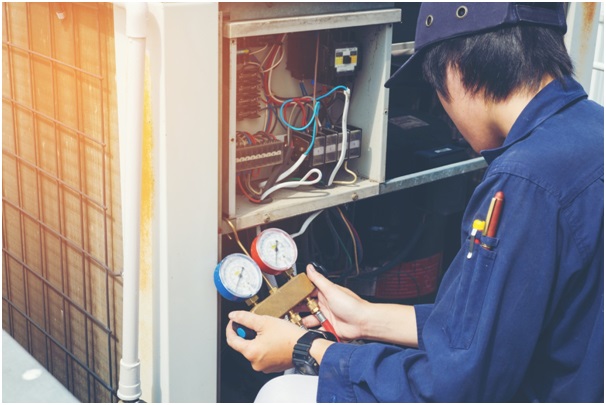Many people have only a vague notion of what people working in the heating, ventilation, and air conditioning (HVAC) industry do at their jobs. They probably know even less about the range of careers in HVAC.
Most but not all HVAC workers begin as technicians, moving through their careers as they continuously learn new skills and earn certifications in HVAC specialities or new technologies.
In this article, we’ll explain how and why the HVAC industry would make a good “work home” for the right people—many of whom don’t realize it yet. Consider the following five reasons as a start to exploring this fascinating industry.

1. There’s Always a Need for the HVAC Industry
These days, HVAC repair services are needed just about everywhere. Who in North America doesn’t have at least a furnace of air conditioner at home or work?
Today, many homes and offices have fully integrated heating and cooling systems that require complicated installation, periodic repairs, and regularly scheduled maintenance.
2. Most Earn a Decent HVAC Salary
An HVAC salary depends on a few different factors. These include:
- The state or city where they’re located and its cost of living
- Climate conditions and their effects on HVAC equipment
- Their career stage, experience, and credentials
According to the Bureau of Labor Statistics May 2019 data, Alaska tops the U.S. for the highest average wages for HVAC technicians. There, rates come to just over $32 per hour or around $68,000 per year. The U.S. average is $48,730 annually or $23.43 hourly.
3. Student Debt Is Low
There are a few different pathways for HVAC credentialing. However, most of the classroom time is brief: You’ll attend from six months to two years in an accredited HVAC program (classroom or online) following high school graduation or the equivalent.
Upon completing the program, an HVAC aspirant might choose to complete an internship (typically paid) or learn on the job for an unspecified period. Finally, the individual will begin working toward various certifications.
As you can see, the majority of this training is brief, inexpensive, or both. Thus the amount of student debt should be much lower than the average.
4. There Are Many Training and Development Opportunities
For an HVAC employee who wants to advance in their career, professional development is essential. The following are just a few examples of the HVAC training and certifications available to those in this occupation:
- Automotive HVAC
- HVAC Engineer
- HVAC Installer
- HVAC Mechanic
- HVAC Refrigeration Technician
- Solar technician
- Smart Home HVAC
Who knows what further training lies in the HVAC future? Let’s hope our HVAC experts keep pursuing their continuing education opportunities!
5. You Work at a Variety of Sites
Finally, we should mention that many HVAC workers spend little time in the office and a lot in the field. So, if you enjoy moving around and visiting different locations, HVAC could be your ideal career.
You might think about shadowing an HVAC technician for a day to find out what a typical workday for them is like.
The Heat Is on, So Be Cool
OK, that headline sounds pretty corny, doesn’t it? But if you work in the HVAC industry, sometimes you need to make a few corny jokes with your clients so they’ll feel comfortable enough in your domain to ask any questions they might have.
We did forget to mention that meeting new people on the job is another benefit of working in the HVAC industry. In fact, it’s one that makes many of us eager to start our workdays.
Was this article interesting and helpful? Do you want to read more like it? Yes? Then check back regularly to see what’s new.











